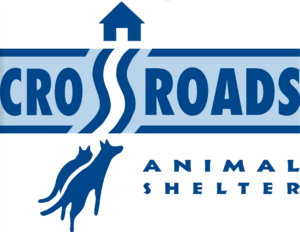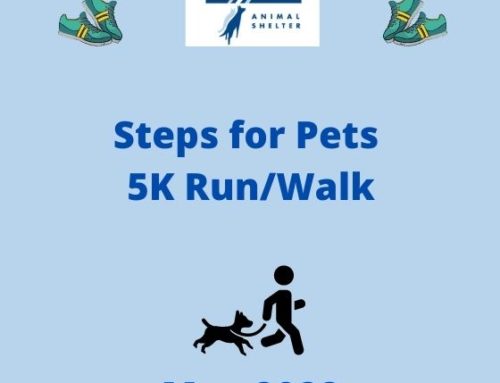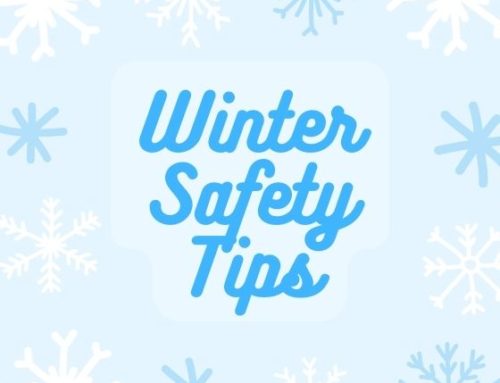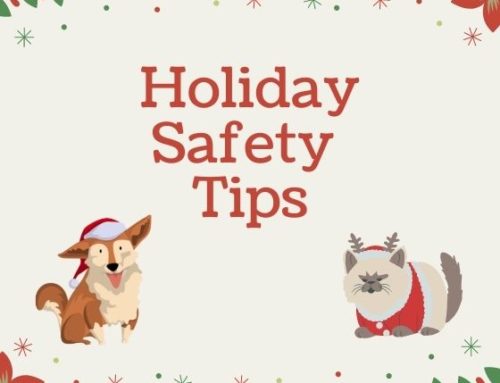
ATTENTION: We have a new blogger!
Gryla is a five-year-old Chihuahua mix. She was adopted from an animal shelter in another state. She has a lot of advice to help her fellow rescues live healthy and happy lives.
Hello Crossroads Critters and Companions!
Just between you and me, my pack and I have gotten into some trouble over the years and have caused our humans some stress. For some reason, the holidays are especially challenging for us. One time, my brother ate a turkey bone that was accidentally dropped, and my cousin snuck onto the dining room table and ate a whole plate of dark chocolate truffles. Both had to go to the vet and didn’t feel well for a bit; luckily, they were okay. This time of year, our house turns into a confusing maze of baby gates to keep us away from just about everything. When guests come over, our humans are always yelling about keeping doors closed.
Our humans always talk about all the things they have to do to keep us safe. We think it’s boring and work pretty hard to try to get around their safety measures. Although (and don’t tell them I said this), we know they are just trying to keep us safe because we don’t always know better.
So even though I put on my best game face and really play up my most pitiful puppy eyes, it’s important that my humans know when to ignore my shenanigans. Our humans need to know what’s safe for us.
Check out some important safety reminders below!
Until next time, have a safe and relaxing Thanksgiving!
🐶 Gryla 🐶
Dangerous Foods
- Turkey can cause problems for your pets. There are some definite no-nos when it comes to turkey.
- No turkey skin.
- No turkey bones.
- No raw meat. It may contain salmonella.
- Some foods tend to end up in a lot of recipes, and they are bad for pets for different reasons. Keep pets away from the following:
- onions
- garlic
- raisins
- grapes
- most nuts
- Pet should not have alcohol.
- Desserts are sweet, but they can make pets sick. Chocolate can make pets very sick. Xylitol (an artificial sweetener) can be deadly. Read ingredient labels carefully!
- Yeast dough and bread dough can cause gas and bloating, both painful and dangerous.
Always be aware of ALL the ingredients in your food. So many of them can be harmful to pets.
Safer Foods Options
(always in small amounts)
- Turkey meat can be okay, but you need to be cautious.
- Stick to white meat (it is less fatty than dark meat).
- It should be fully cooked, unseasoned, boneless, and skinless.
- Remember that even small amounts of fatty foods (like turkey) can create a life-threatening situation for pets. This condition is called pancreatitis. So be careful.
- Sweet potatoes.
- No extra ingredients; keep it plain.
- Peeled.
- Baked or boiled.
- Potatoes.
- No extra ingredients; keep it plain.
- Peeled.
- Baked or boiled.
- Apples. Apples can be a great treat.
- Be sure to keep the core and the seeds away from your pets.
- Green beans and peas.
- No extra ingredients.
- Canned pumpkin. This is a healthy treat. Make sure there are no pumpkin-pie spices or sweeteners in it. Keep it plain.
Other Considerations
- Be aware of holiday plants. While these plants may be a cheerful addition to your holiday decorations, they can pose a serious threat to your pets. Check out the following websites for more information:
- Keep pets away from holiday decorations; your pets may try to chew on them or eat them. In addition, do not leave lit candles unattended, especially with pets around.
- Food scraps. Turkey carcasses. Food wrappings. All of these things will attract a pet’s attention, but they can be deadly. Keep trash out of reach and take it outside frequently. Don’t leave anything unattended or within reach.
- Guests and travel. Both can be stressful for pets, change their typical behaviors, and create different dangerous situations.
- Visitors might sneak pets treats. Educate your guests.
- There is an increased chance your pet may get loose.
- Make sure your pets have ID tags and are microchipped. Both of those services are offered at Crossroads Animal Shelter.
Final Thoughts
These lists are not complete. It’s always best to ask questions and do your own research.
Keep in mind, all pets are different, and cats and dogs have dietary differences. Just because something is listed as safe does not mean it is the best choice for your pet. Anytime you change or alter a pet’s diet, there can be problems.
Keep your pet’s safety in mind. If you notice any changes in your pet’s health (vomiting, painful gas, diarrhea, constipation, lethargy, etc.), or if your pet gets into something they shouldn’t have, you should call your pet’s vet immediately.
Know what to do in an emergency. Know your closest emergency vet; have the phone number and address ready and easily accessible.
It’s also good to know other resources that you can refer to in an emergency.
- Animal Poison Control: https://www.petpoisonhelpline.com/
- ASPCA Animal Poison Control: https://www.aspca.org/pet-care/animal-poison-control

SOURCES:
Humane Society of Macomb. “Holiday Food Safety For Pets | Safe Snacks For Animals”. Humane Society Of Macomb, 2021, https://humanesocietyofmacomb.org/holiday-food-safety-pets/#:~:text=Instead%20of%20offering%20food%20that,and%20other%20treats%20as%20well.
“Safe Thanksgiving Foods To Share With Your Dog Or Avoid”. American Kennel Club, 2021, https://www.akc.org/expert-advice/nutrition/thanksgiving-foods-to-share-with-your-dog-or-avoid/.
“Thanksgiving Pet Safety”. American Veterinary Medical Association, 2021, https://www.avma.org/resources/pet-owners/petcare/thanksgiving-pet-safety.
“Thanksgiving Safety Tips”. ASPCA, 2021, https://www.aspca.org/pet-care/general-pet-care/thanksgiving-safety-tips.




